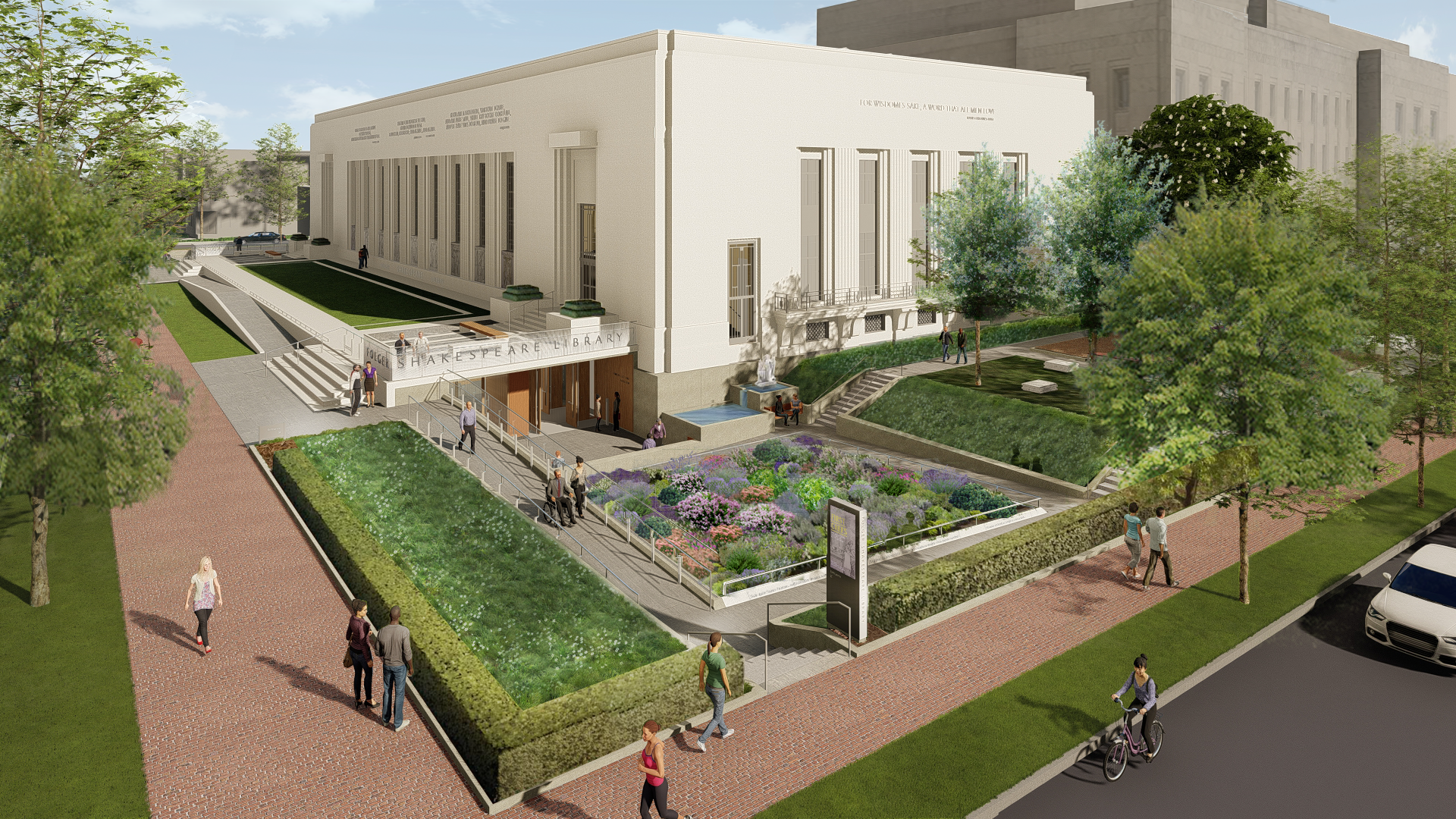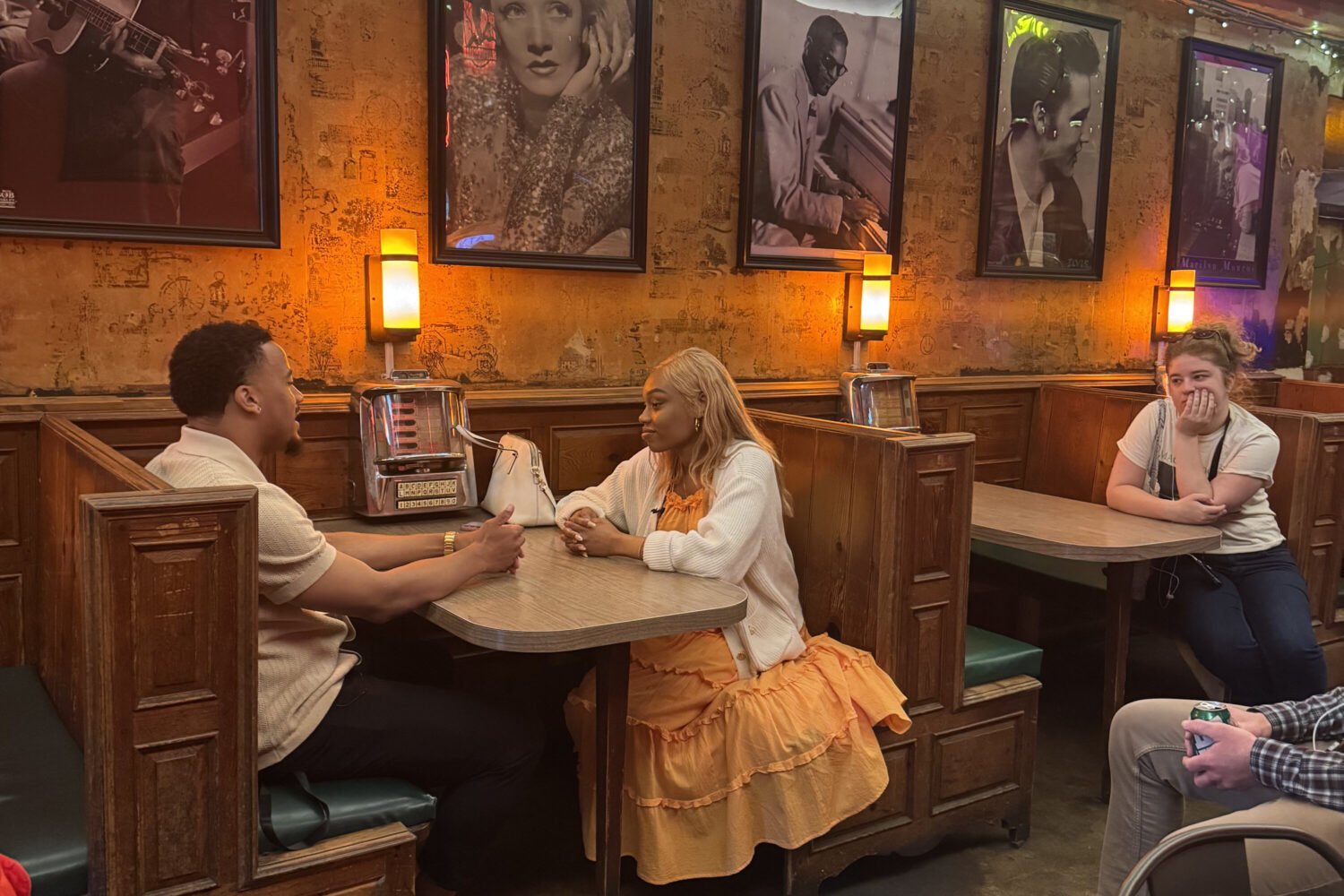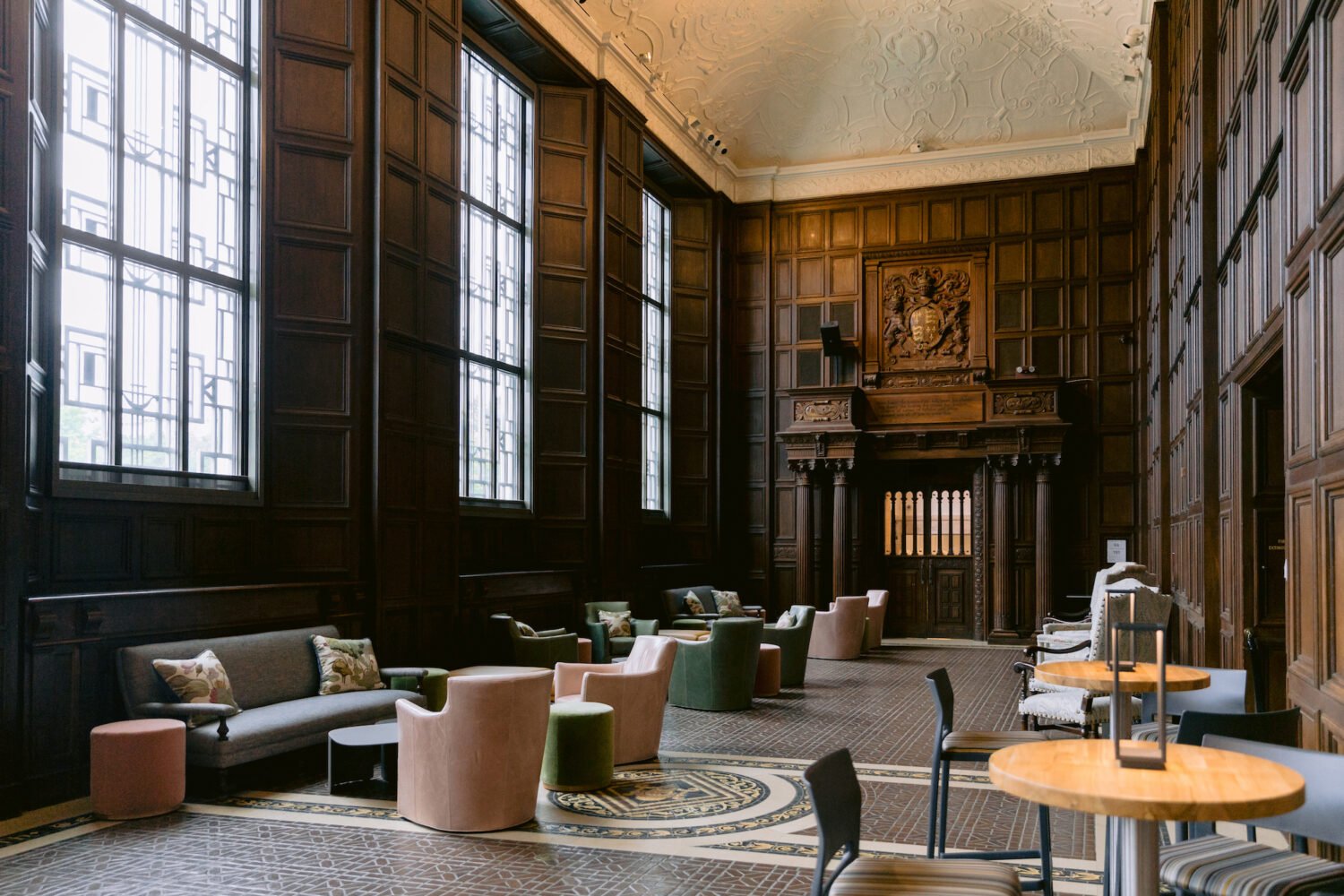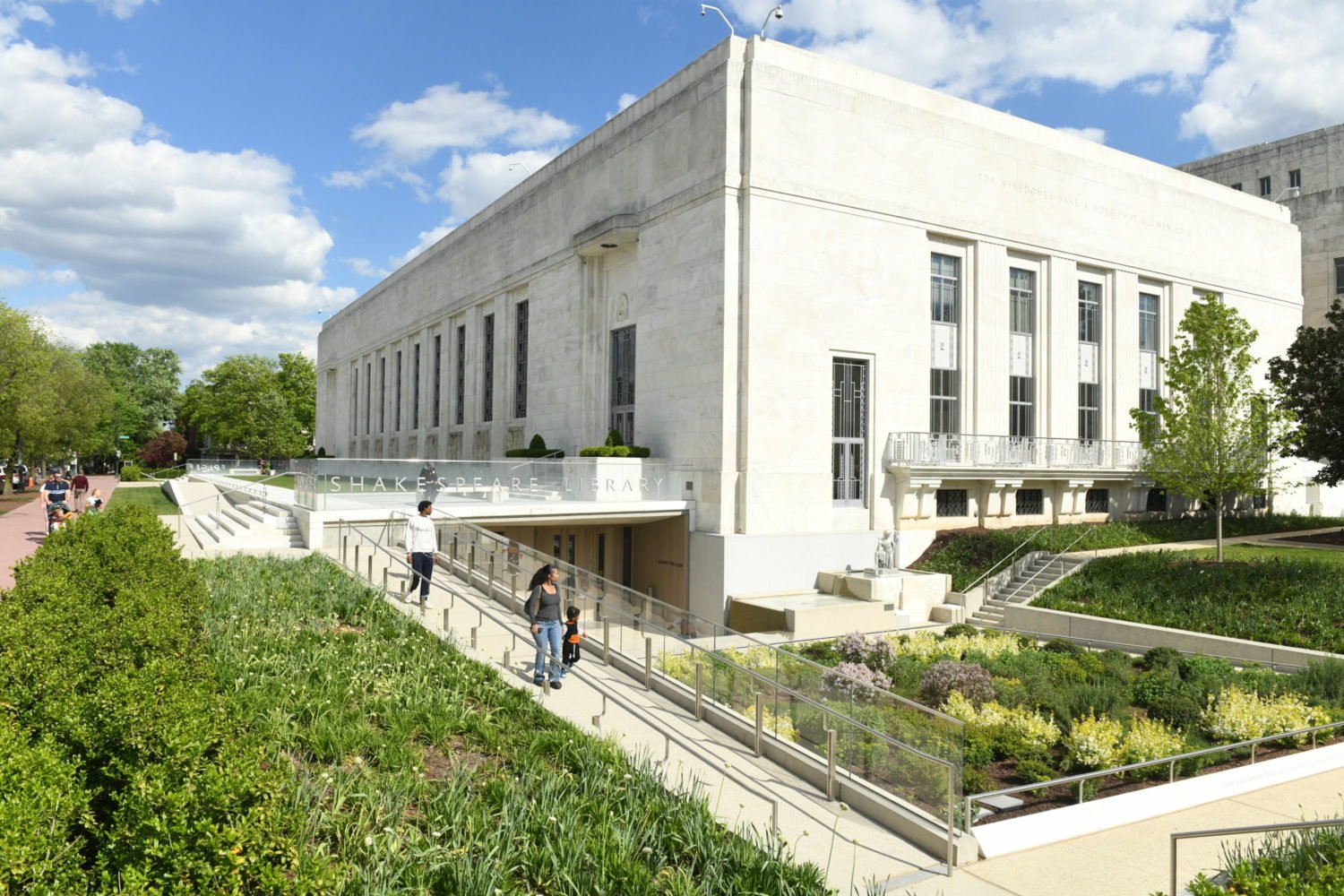Folger Shakespeare Library will reopen on November 17 after a three-year renovation. New additions include two exhibition halls, the institution’s first permanent Shakespeare display, a cafe, public gardens, and more. The building has been closed since March 2020.
One of the new halls will house a permanent exhibit featuring 82 copies of First Folio, a compilation of Shakespeare plays that came out after the Bard’s death. Folger’s collection represents more than a third of the remaining copies. The texts will be displayed in a 20-foot vault. “The book is a touchstone, not just for Shakespeare, but for theatre and the power of great storytelling everywhere,” says Folger director Mike Whitmore.

Outside the walls, new public gardens will feature Easter eggs for Shakespeare fans. In addition to native plants, there will also be some flora mentioned in the playwright’s works such as boxwood (A Midsummer Night’s Dream and The Tempest) and lavender (The Winter’s Tale). A Juliet balcony will overlook the east entrance, and an aluminum replica of sculptor Brenda Putnam’s statue of Puck, the mischievous fairy from A Midsummer Night’s Dream, will be in the west garden.
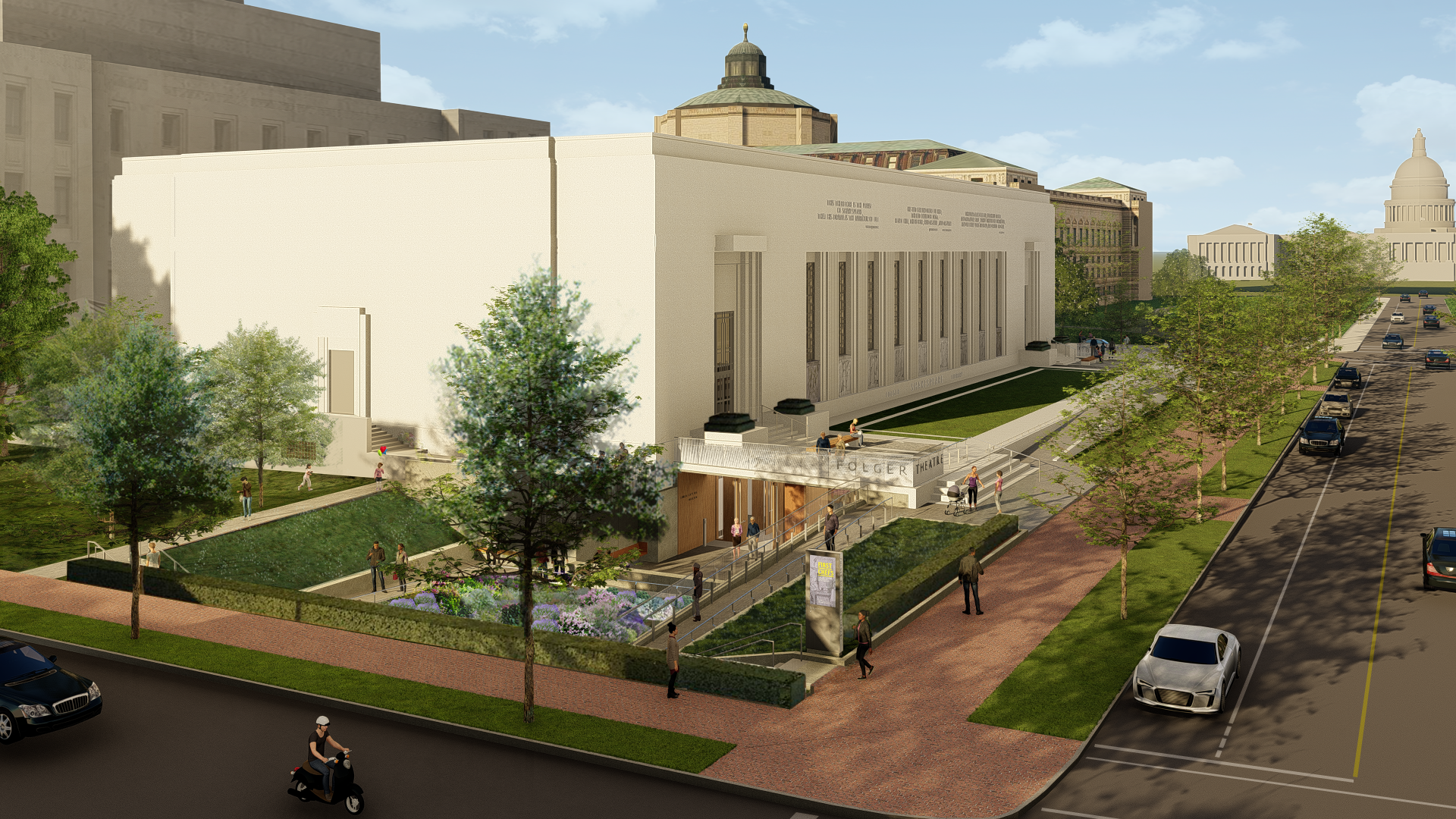
Shakespeare isn’t the only creative with works in the renovated space. A new poem by US Poet Laureate Rita Dove will be etched into a marble path in the garden. Artist Fred Wilson is crafting a piece from Venetian glass that will be displayed in conjunction with a 16th century portrait of Queen Elizabeth.
“It takes literally the idea that contemporary artists look back at the tradition and reflect it in their own in their own way,” explains Whitmore. “Each generation finds their Shakespeare, and they argue with him. They use his words for new purposes, they admire the stories, the characters, and the poetry, but it’s a dialogue.”

